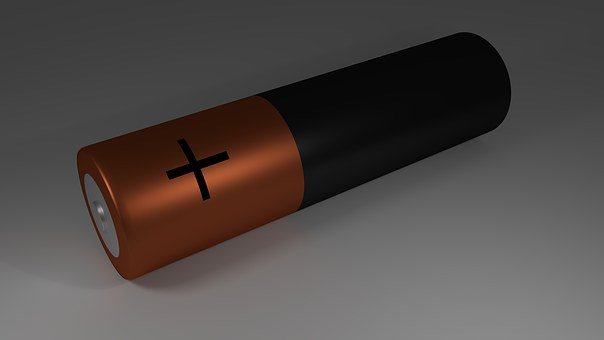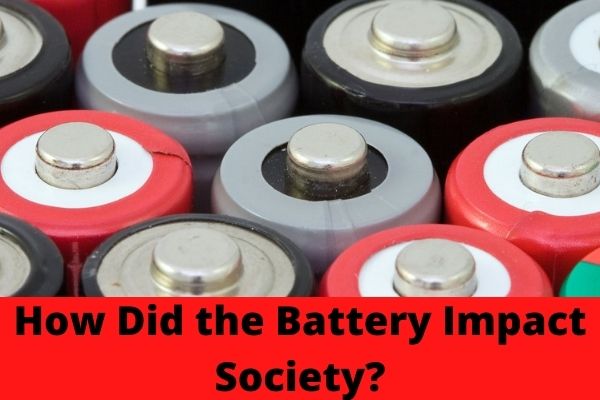In many circumstances, you may get a wet lithium battery. This is quite problematic for many as they do not know if this is safe or if it will harm the battery as well as the devices.
Is it safe to get the lithium battery wet? Can you dry it quickly too?
Well, it is not very safe if the battery gets wet as it may cause corrosion and damage many things and may in many cases explode. Even though this is quite rare to happen.
Can a Lithium Battery Get Wet?
The previous lithium batteries were not waterproof but the newer ones are different.
The newer lithium-ion batteries are engineered to be waterproof, and with casings and terminal feed-throughs entirely sealed. This keeps moisture from getting into the battery.
Furthermore, the stickers that are coated around them are plastic-like and non-porous, protecting the metal alloy shell from coming into touch with the water.
Nevertheless, when lithium batteries were first introduced to the market, little work was put into making them water-resistant. Their manufacturing materials were defective in some way as compared to conventional lithium-ion batteries, allowing water to pass through.
Nevertheless, it should be noted that the ingredients used to manufacture batteries and also lithium-ion cells create the batteries thicker than water. This implies that every battery put on the water’s surface will sink.
Submerging a battery in water is not recommended since it may damage the sealing on the case, allowing the batteries to become wet.
Whenever water enters into the batteries, it can cause fast oxidation of the metal connections inside the cells, reducing the overall efficiency of the battery pack.
Water can also interfere with the battery maintenance circuitry, resulting in severe reactions inside the cells.
What Happens If You Put a Lithium-ion Battery in the Water?
Lithium batteries are widely used in many electronic devices. Although cells are a sophisticated innovation, this does not exclude them from having drawbacks.
Although lithium batteries are sealed, they are not water-resistant. When put in a watery environment, they may get wet or moist.
If lithium combines with water, it produces extremely combustible hydrogen and lithium hydroxide. The resulting solution is quite alkaline. When there is water in the cell, it is readily harmed.
If there is a lot of water, take it to a service center right away. Remove any kind of moisture.
Do Lithium-ion Batteries Explode in the Water?
Lithium batteries are very rare to explode or cause any damage to surroundings. However, there were some cases where the battery exploded.
The same property which makes lithium-ion batteries incredibly helpful also renders them prone to catching fire or exploding.
Lithium is an excellent energy storage material. When discharged in a trickle, it runs the car. When it is released all at once, the battery has the potential to explode.
The majority of lithium-ion battery fires and explosions are caused by short – circuits.
This occurs whenever the plastic separator breaks, allowing the anode and cathode to come into contact. When those two elements combine, the battery begins to overheat.
The separator might fail for a variety of reasons, including:
Poor Design or Manufacturing Defects:
It happens when the battery is badly constructed. In such a situation, the electrodes and separator might not get enough space in between them.
When the battery swelled slightly during charging in some versions, the electrodes twisted and created a short circuit.
Even the best-designed batteries might malfunction if quality management is inadequate or there is a production flaw.
External Reasons:
Intense heat almost always fails. Batteries that are kept very near to a heat source or become entangled in a fire have been found to explode.
Several external factors can also lead to the failure of a lithium battery.
If you hit the battery somehow, you risk damaging the separator and causing the electrodes to contact.
If you puncture the battery (accidentally or on purpose), you will almost likely produce a short circuit.
Charging Problems:
A charger that is improperly constructed or sealed might potentially harm a lithium battery. If the charger sparks or creates heat around the battery, it might lead it to collapse.
As a result, I suggest using only approved chargers. Overcharging safeguards are integrated into lithium-ion batteries. So, it will lead to overheating a battery if such safety steps fail.
Can you Make your Battery Waterproof?
You can render the battery cell water-resistant by following a few simple procedures.
Nevertheless, exercise extreme caution while managing batteries of any sort, particularly lithium-ion batteries.
If you perform a lot of outside jobs or your hobbies take place in adverse weather, preserving your batteries dry might be difficult. Water may accelerate battery corrosion.
Waterproofing the batteries is a simple process that does not necessitate the acquisition of any expensive items that you may not own already.
The processes for completing the water-resistant process are as follows:
Step 1:
You just need a water-resistant coating ingredient for this project. You shouldn’t have to buy a particular coating because various materials around your house will suffice.
Urethane water-resistant coatings and rubberized paints are examples of such materials. It’s acceptable if you may not have them at your residence because they’re not typical sitting-at-home things.
You may, however, go out and buy silicone or urethane conformal coatings. I choose these products since they soak effectively, adhere securely to meat, and dry quickly.
Step 2:
You simply have to smear the coating substance over the battery terminals, and it is recommended that you choose a compound that begins off as a liquid so that it may soak fully into the terminals’ microscopic corners.
Furthermore, do not cover the positive terminal in which a dimple is apparent throughout the coating.
Can you Recharge the Battery When it is Wet?
You can do it although that is not suggested as it can cause serious problems including short-circuiting or harming people around or other elements.
If you suspect it is moist on the inside, dry out properly.
When you connect it in while it’s soaked, it could function, although the corrosion may decay the wires and circuit panel and decrease the charger’s life. Or even harm the battery and the electric system.
You may speed up the drying process by placing this in the sun on a hot day, or by placing it close to a heater exhaust on a cold day.
However, never heat it too much or it may cause serious damage.
Conclusion
Lithium-ion batteries are quite good and sustainable because they can withstand wet circumstances because of their compact and airtight structures that resist water intrusion.
Nevertheless, it is still recommended that you do not let the batteries get wet, since this might decrease their performance.
Related Posts:


